Our History in the Pacific Islands
Barefoot College International identified the Pacific Islands as an area to work across in 2012. Since our first visit to the region, we have trained 77 Barefoot Women Solar Engineers in 14 Pacific Island Countries, across the three major island groups of Micronesia, Polynesia, and Melanesia.
We are currently working in Renewable Energy and Livelihood Development in the island countries of Fiji, Vanuatu, Papua New Guinea, Nauru, Palau, Kiribati, Solomon Islands, Samoa, Tonga, Cook Islands, Tuvalu, Micronesia, Marshall Islands and Niue.
As with all Barefoot projects around the world, we educate and empower women to become solar engineers who install and maintain the equipment for all households in their villages. Mature women are chosen for their commitment to their village homes and the fact that they stay in their villages after receiving training – creating sustainability and independence for those selected rural communities.
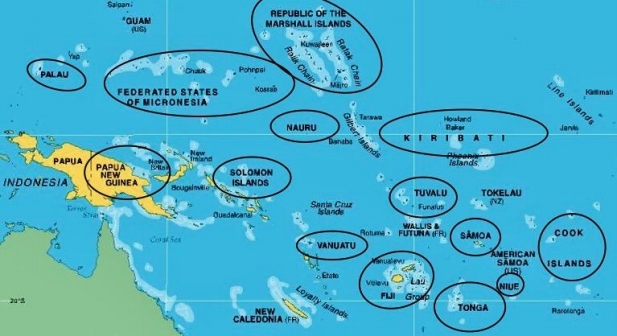
Participating communities are remote, rural villages that have little prospect of being included in the
traditional power grid. These communities register significant cost savings on expenditures for kerosene
and batteries in nearly all cases. The positive impact of solar electrification is on community-wide economic activity since solar lighting enables the extension of and improvement on the continuity of economic and income-generating activities after dark.
Improvements can also be seen in access to information and communication – all communities will show an increase in mobile phone usage as solar energy users are now able to charge mobile phones on a regular basis.
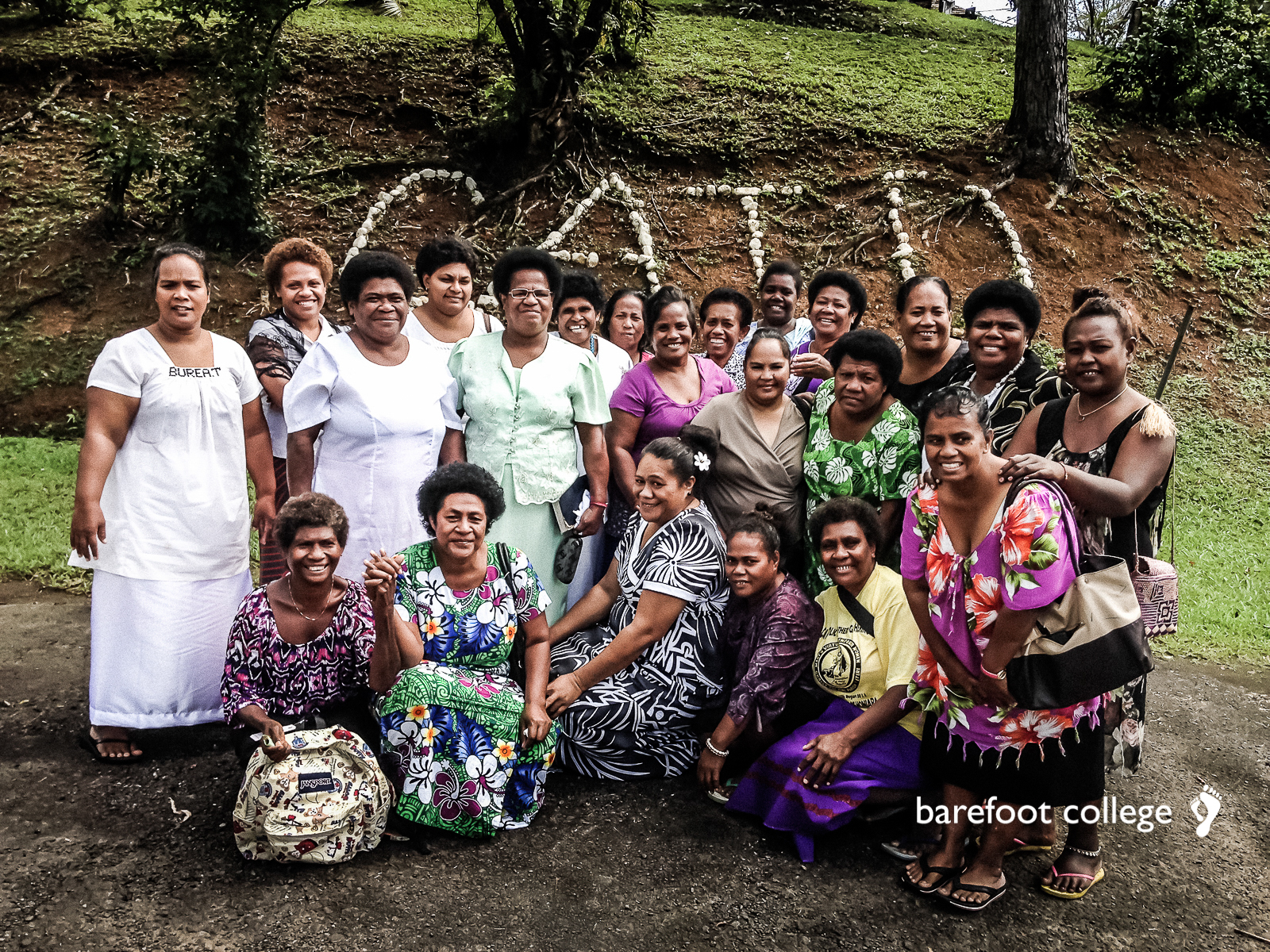 Pacific Islands women alumni
Pacific Islands women alumni
Grassroots Mentality with Widespread Impact
The Barefoot Approach is the leveraging of local community contribution and participation with public and private sector investment and financing. Working in partnership with the local community, the Barefoot Approach draws on a mix of resources including government and international funding agencies, private foundations, and corporate and individual sponsors to enable the appropriate investment for cost-effective and self-sustaining solutions.
Representation in the Pacific Islands
Our teams exist in a part of the world that endures extreme isolation, considerable economic and social development challenges due to the increasing impact of rising sea levels caused by climate change, and gender inequality where most rural women have little agency in decision making.
Industrial and commercial development is increasing the region’s vulnerability to the impacts of climate change, threatening the natural resources utilized by indigenous women in their diet, crafts and livelihoods.
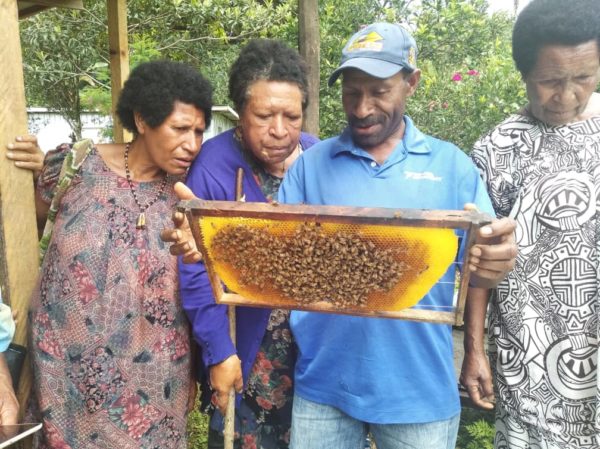 Papua New Guinea women receiving Beekeeping Training
Papua New Guinea women receiving Beekeeping Training
Our mission is to foster self-sufficiency and promote sustainability among the rural poor through women
empowerment and community partnerships. Barefoot College International in the Pacific strives to ‘be the change’ by instigating and supporting programs for sustainable, renewable, clean energy. We exist also to create livelihood opportunities for marginalised, mature women, boosting their income and providing eco-friendly, self-reliant solutions for village communities across the Pacific.
Current Projects: Government of India – Pacific Islands Sanction
In 2014, when Forum for India–Pacific Islands Cooperation (FIPIC) was launched, India offered some major assistance projects. One such project included the setting up of funding for climate change adaptation and clean energy. In May 2017, a sanction was signed between the Ministry of External Affairs, Government of India and Barefoot College International to provide Solar Electrification to 2800 households and sustainable livelihood generation initiatives across 13 Pacific Island Countries.
Pacific Islands Countries closed their borders in the wake of the Covid-19 Pandemic in the first quarter of
2020; however, shipments with solar and livelihood equipment for Papua New Guinea and Fiji were fortunately dispatched prior to the border closures, arriving in those countries in April 2020. Delivery of the equipment to the village locations has been hampered by Covid-19 lockdowns throughout 2020, and more recently due to extreme weather events, but is now being completed by our partners on the ground.
India supply chain and production assembly operations were also impacted by successive Covid-19
lockdowns and restrictions, with repeated containment zones and inter-state freight blockages affecting key suppliers (the equipment supplies are all procured within India). All the supplies have now been received and the dispatch of containers to the remaining 12 islands is scheduled, due to reach in the coming months.
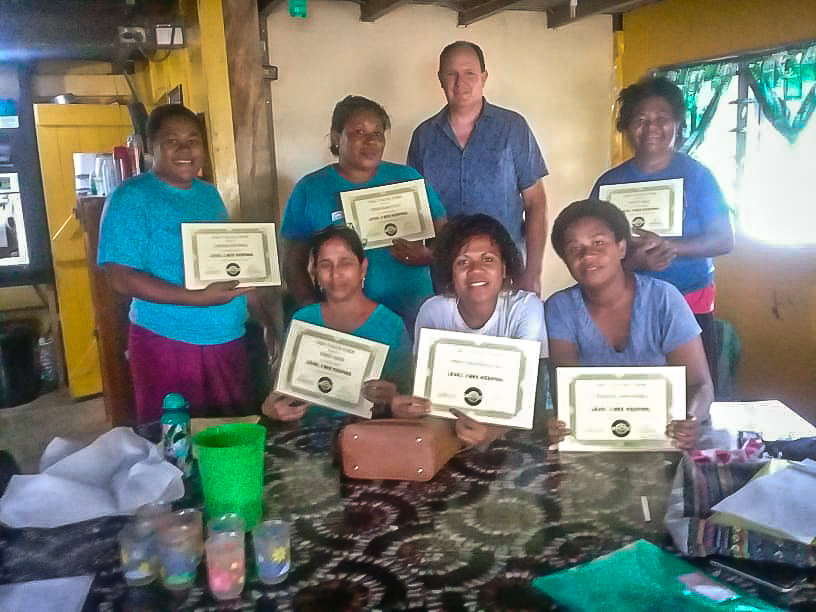 Fijian women proudly displaying the certificates for completion of Beekeeping Training in November 2020
Fijian women proudly displaying the certificates for completion of Beekeeping Training in November 2020
Monitoring and Evaluation in Pacific Islands
Barefoot College in the Pacific Islands believes that each country and community across the region is unique, and each individual and their family has their own story to tell. We have tailored our baseline, monitoring and evaluation questionnaires for the region and hope to discover meaningful outcomes and reveal quality changes for the communities in which we work.
Through the Barefoot M & E process, we try to capture those distinctive stories of the unique Women Barefoot Solar Engineers, her family and her village.
Solar
Some of the countries have been using Barefoot Solar in their communities since 2013; the rest will be
receiving equipment for the first time through the current Government of India funded project under a FIPIC Sanction detailed below.
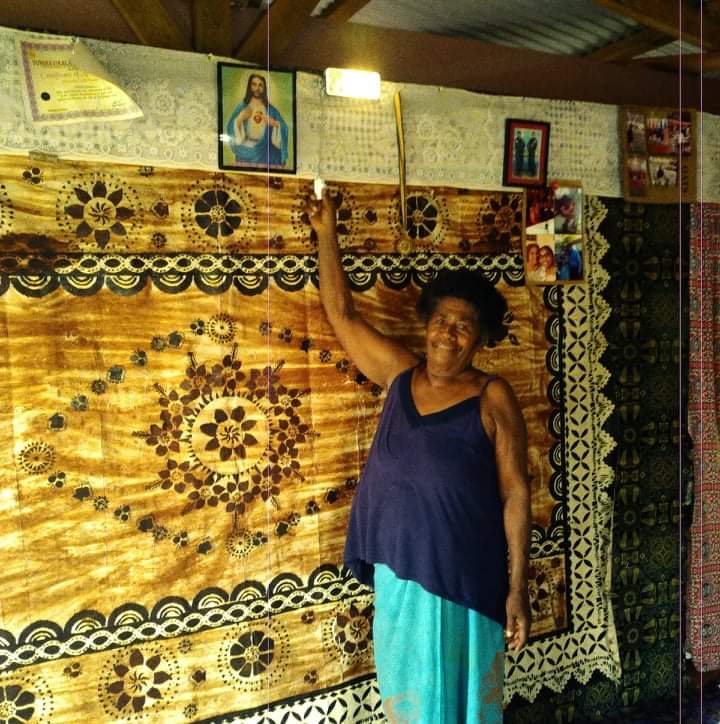 Clean, reliable, renewable solar energy helps the Pacific Islands stay alight
Clean, reliable, renewable solar energy helps the Pacific Islands stay alightIn Fiji we are working with local community-based organisation Fiji Locally Managed Marine Area (FLMMA) – a non-profit and charitable association working in over 400 local communities since 2001. Installations in Fiji villages were completed before recent Tropical Cyclones Yasa and Ana.
Fortunately, and thanks to the great work of our local ground partner FLMMA and the Fijian Solar Mamas, the equipment was protected, remained undamaged and is now working in all the participating communities. Installations in Papua New Guinea will occur by mid-2021.
In response to Covid-19 project delays and restrictions, we have launched a series of digital retraining videos for the women as extra support in the upcoming implementation phase of Solar Home Lighting Systems.
LIVELIHOODS
Beekeeping Projects in the Pacific Islands
Employing a holistic approach to beekeeping, the aim is to establish, develop and deliver training programs for women in the Pacific in sustainable beekeeping.
The Initiative has the following objectives:
● To establish a training program for local rural women in relation to sustainable beekeeping, including
practical training, supply of beehives, beekeeping equipment, introduction of bee colonies and regular
follow up support for a period of 2 years at the women’s locations.
● To increase revenues of rural women, through local production of pure and natural honey and bee by-
products.
● To improve the quality of life of rural women and members of their communities, through promoting
and facilitating sustainable beekeeping, environmentally friendly practices, and the sale of honey
produced by them for fair value.
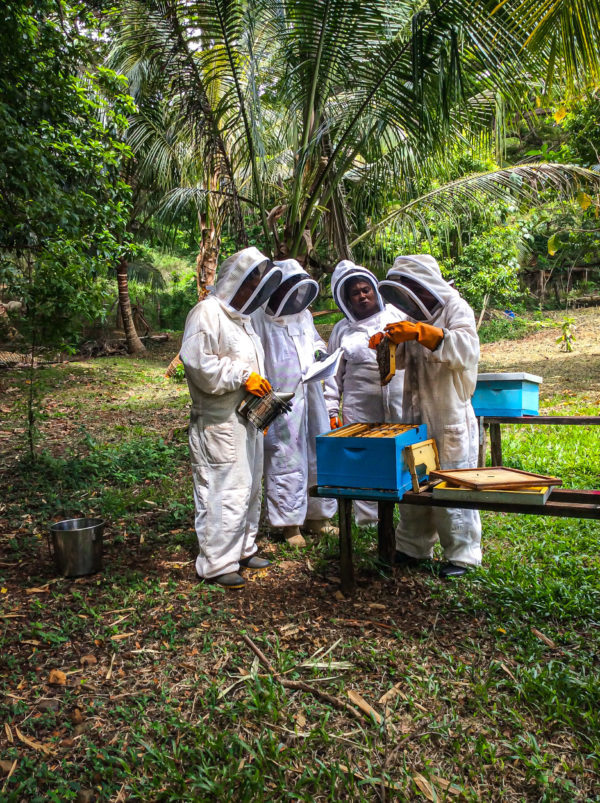 Fijian Women Beekeepers inspect their hives together
Fijian Women Beekeepers inspect their hives together
We partner with local experts and facilitate structured training programs and market linkages for sale of the extracted honey. We identify and train rural, non-formally educated women of the Pacific in practicing a sustainable beekeeping activity, as a secondary livelihood.
Our well-established and trusted ground partners in Fiji and Papua New Guinea work with our Agri- Livelihoods Team for the launch of the ‘Beekeeping Livelihood Training Program’ – Beekeeping and Honey production pilot project.
Fiji Beekeeping
In Fiji we are working with the Fiji Beekeepers Association in Nabutubutu, Navukebule and Nubu villages, Nadogo District, Macuata Province in Vanua Levu. This location is near the new Pacific Region Barefoot Vocational Training Centre (Fiji BVTC) which is currently under construction and was chosen with anticipation that the women would become master trainers in beekeeping at the centre in the future.
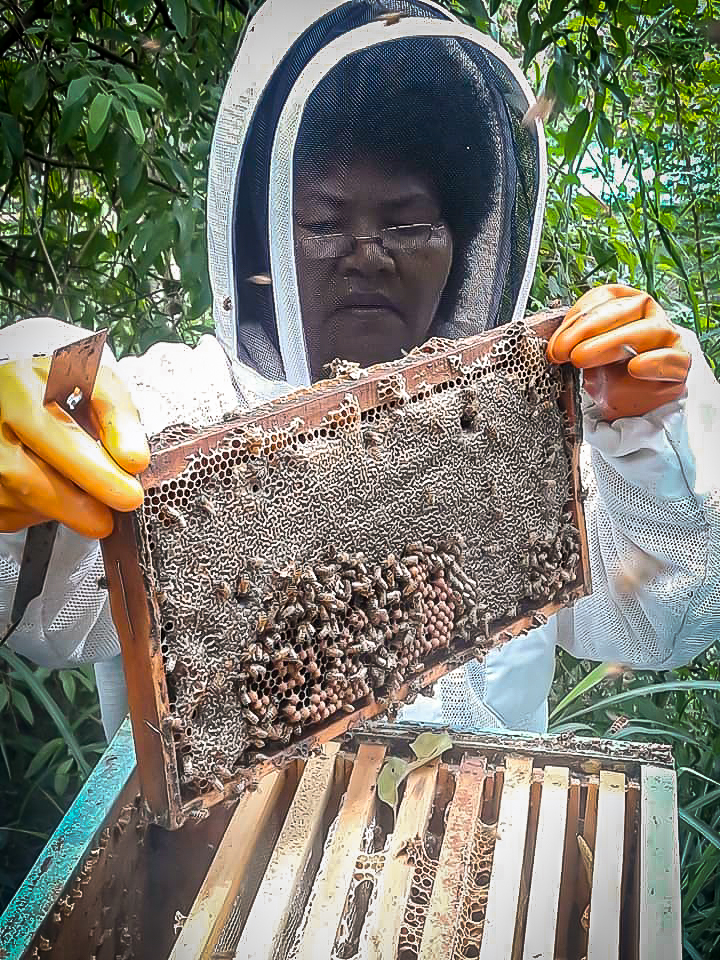 Fijian beekeeper Siliva Sele Vuki inspects her hive at harvest time
Fijian beekeeper Siliva Sele Vuki inspects her hive at harvest time
Six women (including 2 Barefoot Solar Mamas and 4 other community members) were selected to undertake the training, composed of 3 sessions of 2 days training between July to November 2020, and 12 mentoring visits in women’s villages over a period of 2 years. Beehives (5 each) and equipment were provided to them in July 2020.
Papua New Guinea Beekeeping
In PNG we are working with Helping Hand Honey Producers in the villages of Elgem, Gapina, Popun, Kuipun and Panjin, Mount Hagen District, Western Highlands Province. Selection and training of Six women (including 4 Solar Mamas and 2 other community members) were completed in February 2021.
The delivery of beehives (5 each) and equipment is planned for mid-April 2021, but is to be confirmed as the country is experiencing a Covid-19 outbreak and will be under lockdown. Women will receive monthly mentoring visits over a period of 2 years, after receiving their equipment.
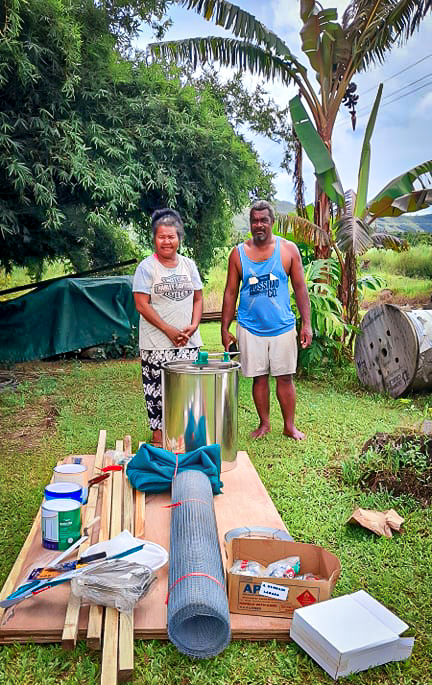 Siliva Sele Vuki from Fiji stands with her husband and provided honey harvesting tools
Siliva Sele Vuki from Fiji stands with her husband and provided honey harvesting tools
Sewing and Women’s Wellness / Reusable Sanitary Pads
Under the FIPIC Sanction, sewing machines are provided in each REW for the solar mamas and women of their communities to explore sewing enterprise opportunities. In addition, Reusable Sanitary Pad Kits containing enough materials to stitch 300 pads are being provided to each REW.
A Reusable Sanitary Pad small enterprise model is being explored for all 14 countries, involvement will depend on the suitability of the product to the culture and community. Training in Menstrual Hygiene and Micro-Enterprise Skills is being provided to support each ground partner, the solar mamas and the women in those communities interested in participating.
REGIONAL BAREFOOT VOCATIONAL TRAINING CENTRE – FIJI BVTC
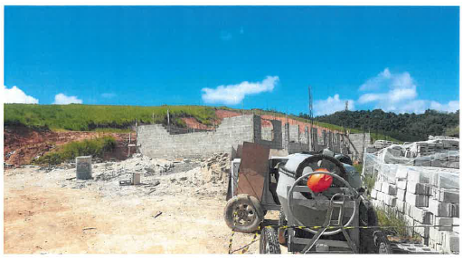 Our Fiji BVTC Training Centre Construction is Underway
Our Fiji BVTC Training Centre Construction is Underway
Due for completion in December 2021, the Government of Fiji has invested USD$2.2 Million toward the development and construction of the training centre. The Fiji BVTC will be the first and only institutional facility in the Pacific Islands where mastery of renewable energy technology coupled with a holistic approach to building entrepreneurial skills for women, with little to no previous formal education, has been established.
It is a systems-change approach that represents the Government of Fiji’s visionary leadership towards driving inclusion and gender equity within the frameworks of climate change, accelerating SDG action at the community level and a commitment to ensuring that all women prosper.
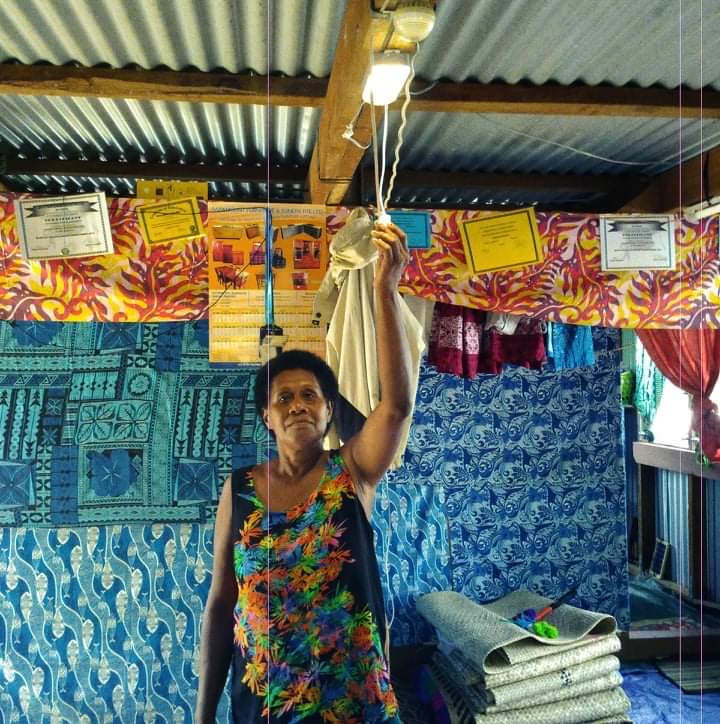 Solar Mamas bring renewable solar energy to remote Pacific Islands
Solar Mamas bring renewable solar energy to remote Pacific Islands
